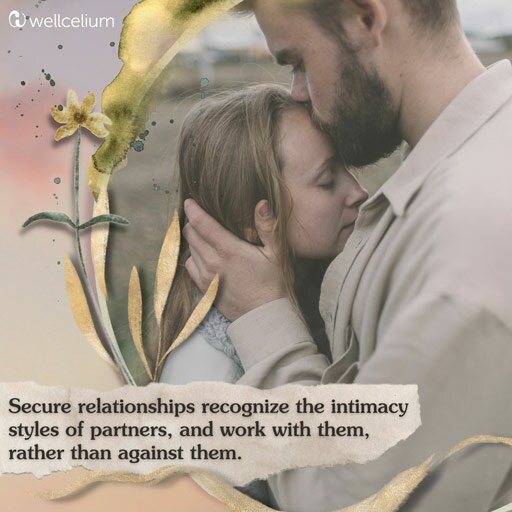Often couples in long term relationships tend to ‘smoosh’ together, and can lose their clearly defined self. Part of a thriving relationship is two partners who are deeply connected to their own center and committed to their own desires and needs. It’s only when you have yourself that you can be a safe, consenting partner.
Your relationships will likely go through periods of feeling more balanced and less balanced, depending on what’s going on in your life.
This fluctuation is completely normal, and is part of the work of maintaining a long-term partnership. Finding yourselves as individuals in the relationship is an important component of achieving balance together.
Thriving relationships may also be described as interdependent relationships.
Here, both partners mutually support each other as individuals as well as within the relationship. You can rely on each other for support, but you also have a clear sense of your individual identity and personal power.
In your interdependent relationship, each of you bring your own self-esteem, without depending solely on the other to get all of your needs met. Each of you maintain friends, connections, hobbies and interests outside of your relationship.
Signs of a healthy interdependent relationship can include:
- open communication
- trust
- a sense of individuality
- time apart
- curiosity
- playfulness
- physical intimacy
- conflict resolution
- teamwork

Questions to Ask Yourself:
What do I want in our relationship and how am I showing up?
Where do I experience a feeling of balance in our relationship?
Where do I experience feeling out of balance in our relationship?
As I consider balance and imbalance, what does each one feel like in my body?
Suggested Practice:
Here are some ways you can practice getting in touch with your clearly defined self:
- Notice and identify your emotions
- Practice being comfortable doing things by yourself
- Hold your partner’s point of view with compassion
- Consider what needs your partner meets for you and what needs you meet for yourself
- Identify your core values
- Make time to maintain your interests and passions
- Learn something new
- Enjoy time one-on-one with friends
- Love Yourself
Suggested Resources:
Guided Mindfulness Meditation on Self-Love and Self-Worth (YouTube video)
References for this article:
Definition of Codependency: Johnson, R. Skip (13 July 2014). “Codependency and Codependent Relationships”. BPDFamily.com. Retrieved 9 September 2014.


